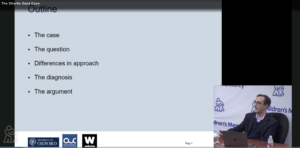Medical Treatment Disputes and the International Second Opinion
By Dominic Wilkinson
Disputes about medical treatment for seriously ill children are in the news again. Last week, the High Court in London decided in favour of withdrawal of life support from a brain damaged 11-month old infant, Isaiah Haastrup, against the wishes of his parents (an appeal is pending later this month). This week, the High court, sitting in Liverpool, is hearing evidence in the case of 20-month-old Alfie Evans, an infant with an undiagnosed degenerative brain condition.
In both of these cases, as in the controversial Charlie Gard case from last year, medical evidence from UK professionals has been overwhelmingly in favour of withdrawing life support and allowing the children to die. However, in each case parents have sought and have obtained evidence from overseas medical specialists who have testified in favour of continued treatment. In the Evans case, as in the earlier Gard case, experts from the Vatican hospital in Rome have apparently offered ongoing treatment.
This suggests several questions. First, why is there a difference between the views of specialists in this country and those overseas? Second, if there are differences in expert opinion about treatment for a child, should courts give any more weight to the views of UK experts than those from overseas? Is there a valid reason to discount the international second opinion?
Read More »Medical Treatment Disputes and the International Second Opinion


